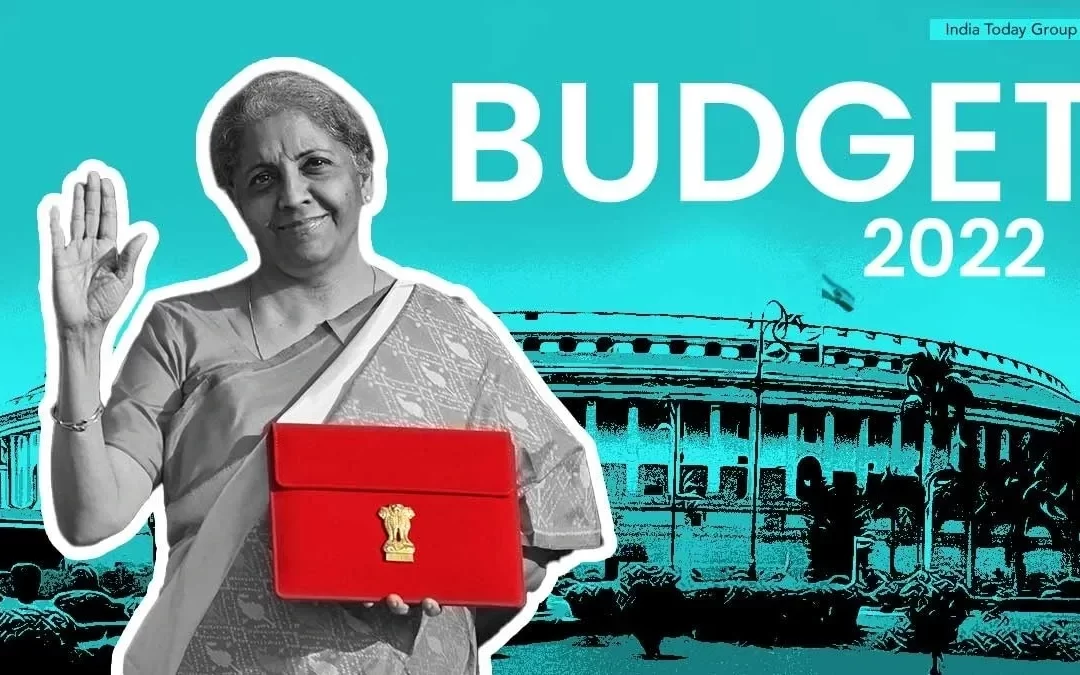Finance Minister Nirmala Sitharaman proposed a number of initiatives as she presented the Budget of the Government of India for this fiscal year, aimed at improving the country’s Startup environment. She proposed limiting the surcharge at 15%, regardless of its size of Long-term Capital gains. NABARD will also support the foundation of a Venture Capital Fund using the co-investment approach. This is to fund agricultural and rural enterprise companies that are related to the farm product value chain.
These businesses’ activities will encompass, among other things, FPO support, farm machinery on a rental basis, and technology, including IT-based support.
The government intends to push new age entrepreneurs by enabling ‘Drone Shakti’ through a multitude of scenarios and for Drone-as-a-Service (DAAS). The essential training courses will begin in select ITIs across all states.
The Finance minister also proposed forming an advisory body to oversee the flow of cash to start-ups via Venture capitalists and equities.
Nirmala Sitharaman suggested prolonging the Startup tax cut plan till March 31, 2023 for companies that have been formed. She had already declared just one year extension to the startup tax holiday scheme, which applies to businesses established after 2017.

In addition, the government has suggested cutting the income fee on consortium members to 15% in order to keep up the LTCG tax. A ‘One Nation, One Registration’ policy would be implemented to make business enrollment easier. This will include the digitization of physical or paper-based procedures and operations, as well as the convergence of union and provincial levy systems and the creation of a point of contact. Agriculture’s estimated costs for this year is Rs 1,32,513.62 crore, relatively higher than the cumulative allocation of Rs 1,31,531.19 crore to different divisions under the Agriculture Ministry: the Department of Agriculture, Cooperation and Farmers’ Welfare and the Department of Agricultural Research and Education. This will definitely help Venture Capital Funds and Angel Investors allocate a larger part of their investments into AgriTech.
In her Budget statement, Nirmala Sitharaman also stated that the wheat purchase in Rabi 2021-22 and the expected paddy purchasing in Kharif 2021-22 will include 1208 lakh metric tons of wheat and paddy from 163 lakh farmers. She further stated that Rs 2.37 lakh crore will be paid directly to their accounts as Minimum Support Price (MSP) value. To supply the most up-to-date technologies, AgriTech startups and enterprises will form public-private collaborations. In the Union Budget 2022-23, the Finance Minister proposed further guidelines and government-run funds for AgriTech entrepreneurs in the drone and Farming-as-a-service sectors.
The government has suggested ‘Kisan Drones’ incentivizing the use of aerial drones for crop evaluation, land record digitization, pesticide spraying, and nutrition application. This is part of a larger attempt to revolutionize agriculture by incorporating data and new innovations. After the certification process was streamlined last year with the Drones Rule 2021, this is intended to boost unmanned aerial vehicles (UAVs) innovation in the country.
She said Technological improvements in a variety of fields, including Artificial Intelligence (AI) and clean technology, as well as genomics, “have enormous potential to foster economic growth at scale and transform the nation; “They create job possibilities for young people and improve the efficiency and competitiveness of Manufacturing economy.”
She said the current Budget would be the first step toward establishing a modern India during the next 25 years. The administration wants to “advance digital economy and fintech, technology-enabled development, energy transformation, and climate action” as part of this agenda.
The startup industry in India has the ability to create revenue. The entrepreneurs have already assessed the situation and are preparing to put their companies on public exchanges. India has already established itself as one of the world’s most attractive startup funding locations. The introduction of more straightforward and investor-friendly standards would assist businesses in gaining access to new equity funding sources and expanding globally.
She also mentioned that Defence research and development will be made available to sectors, entrepreneurs, and academics, with 25% of the R&D budget set aside for this purpose. Through a specific purpose vehicle concept, private industry will be pushed to design and manufacture military systems and gear in partnership with the Defence Research and Development Organisation (DRDO) and other organisations.
And lastly, to help startups and businesses in AI, geospatial tools and drones, semiconductors, cyber economy, genomics and pharmaceuticals, renewable technology, and clean transportation systems thrive in India, the government would take a gentle restrictive framework. All this is also likely to benefit Startup Funding and Angel investors.
The government will encourage thematic VC funds for blended financing, with the government’s stake fixed to 20% and the accounts controlled by local fund managers, to assist financing in some of these fields, including climate action, deep tech, digital economy, pharma, and AgriTech.
Production of key technologies would be included in India’s goods related inducement programs as the country draws closer to the launch of 5G wireless.
A special committee for the animation industries would be established in other growing startup areas in India. Overall, a three-year tax benefit that was provided to companies that emerged before March of this year has been prolonged to include businesses formed by March 2023.

